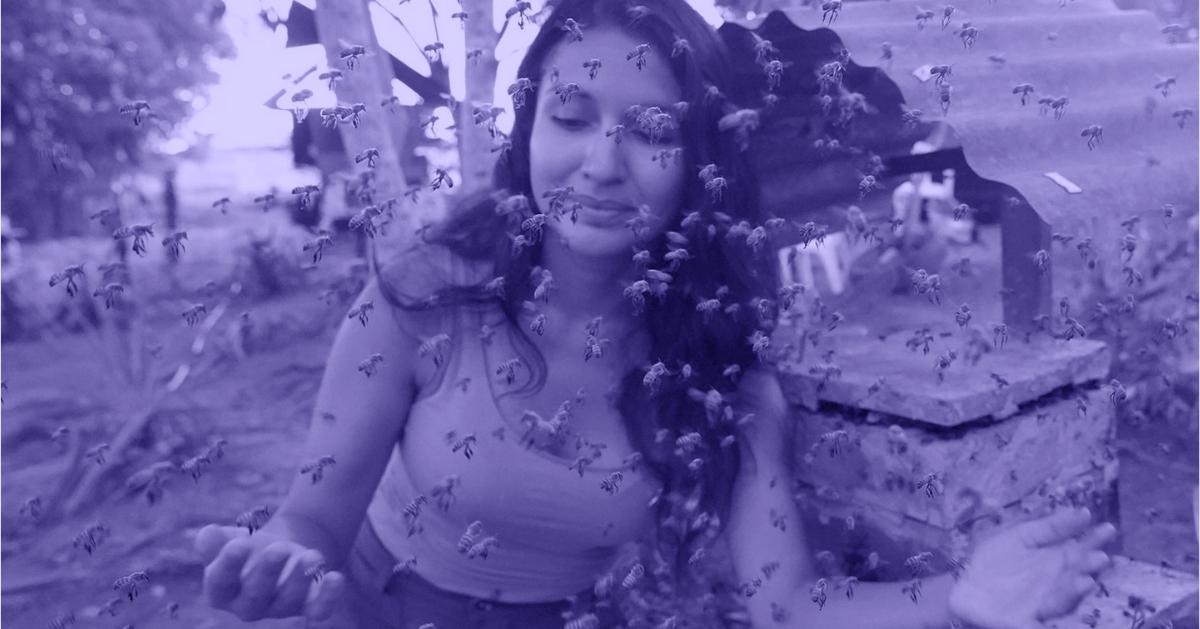For veterans of combat diving, life after the military can lack a sense of purpose. Now a nonprofit called Force Blue is giving these military veterans a new mission by employing their unique underwater skills to restore ocean health.
Veterans of combat diving are used to mission-focused work, so transitioning back to civilian life and working at a desk can be a difficult adjustment for many veterans.
Enter Force Blue, a nonprofit that unites military veterans with the world of coral reef conservation for the betterment of both.
A big challenge these combat divers face, according to the team’s executive director Jim Ritterhoff, is a sense of not having a mission anymore.
“We’re not a dive therapy program,” Ritterhoff told the news program Living on Earth.
“Our guys are already the best divers in the world. We’re a mission therapy program. We’re all about giving them back that sense [that] your skillset can still be utilized. We can take the training that you already have and the qualities that made you so successful in the military and now use those for the greater good for a cause larger than themselves.”
These veterans come from backgrounds of highly specialized work: special operations teams with extensive government training in SCUBA diving.
These combat divers come from all branches of the military, and millions of dollars have been invested in them throughout their military careers to turn them into specialized underwater operators. It’s a rigorous program to become a combat diver and one of the more difficult schools in the U.S. military.
The Force Blue team consists of 12 combat divers who can be deployed to restore coral reefs, remove invasive species, and remove marine debris.
At the start of the program in 2017, the team went through a two-week training led by marine scientists and environmentalists followed by five days of individual therapy with Dr. Carrie Elk, who specializes in post-traumatic stress in the special operations community.

Right after training, Hurricanes Irma and Maria hit, and the ocean floors in the Florida Keys and Puerto Rico suffered extensive damage. The team deployed and — working with other conservation groups — worked to bring the floors back to their former glory.
Their uniquely specialized training allows Force Blue to work on operations that other groups don’t have the capability to tackle. For example, an impressively massive 900-pound, 500-year-old coral pillar had been ripped from the floor by Hurricane Irma in the Florida Keys.
One of the groups Force Blue worked with, the government agency National Oceanic and Atmospheric Administration, does not lift anything over 100 pounds. But the Force Blue divers — who had lifted predator drones off the ocean floor in the past — took care of it no problem. It was a significant win for conservation because only four of these pillars exist in the Keys.
But it’s not all about conservation. For many of the group’s members, it’s healing to repurpose their skills and continue their service in a new context.
The group is centered around working with veterans who specifically need the sense of having a mission, not just a hobby.
Ritterhoff recalled the story to Living on Earth of his co-founder, Rudy Reyes, who struggled to assimilate to civilian life after six combat deployments in Iraq and Afghanistan.
After a recreational dive in the Cayman Islands in 2015, Reyes looked at Ritterhoff and asked, “Did you see that fish?” Ritterhoff, who is an experienced diver but not a veteran, was shocked. “What are you talking about? There’s a million fish. That’s the whole point of it.”
But these divers had never seen a fish on their dives. They are used to diving in the middle of the night to destroy a target or rescue someone while hauling hundreds of pounds of gear.
Now they get to see the ocean environments in the light of day and see it from the lens of preserving and restoring the ecosystems that live there.
“You get these guys down there, and it’s like opening a whole new world to them, and the sense of wonder and awe that they had — they were just like little kids experiencing something they’d never had before,” Ritterhoff said. “You just see these guys get back to who they were.”

And these divers have a unique position to bring the message of ocean conservation back to their communities.
“Our guys aren’t going to stop ocean acidification or rising temperatures or some of the real underlying causes of what’s happening to our oceans,” Ritterhoff said.
“But what they can do is be a megaphone to reach people who otherwise aren’t getting the message about what’s happening to our planet. People who are not going to listen to another climate change scientist talk about global warming will go, oh, Navy SEALs, recon Marines, these guys are my heroes, right?”
“We hope that that’s a way to get a whole other section of the population engaged in at least understanding. We always say, hey, we don’t care if you get on the boat from the left side or the right side, we’re all in the same boat.”
This article was written Kailey Thompson and originally ran in The Veterans Edition of the Goodnewspaper.
The Veterans Edition of the Goodnewspaper is a special edition of Good Good Good’s newspaper. It’s focused on celebrating veterans doing good and people doing good for veterans.
You can order The Veterans Edition of the Goodnewspaper here or subscribe to future Goodnewspapers here.



